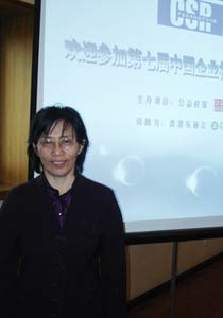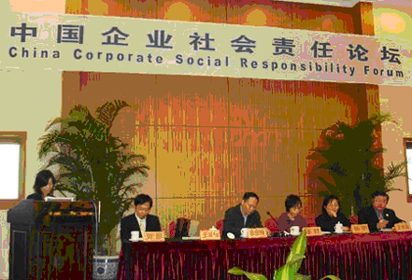Farmers as the basic working group of the supply chain should be given more care and support and enterprises need to fulfill their social obligations by taking on supply chain responsibility, according to Ms. Yang Tuan, Deputy Director of the Social Policy Studies under the Chinese Academy of Social Sciences and Director of the Chinese Social Policy Special Interest Committee, at the Seventh China Corporate Social Responsibility (CSR) Forum on December 13.
Speaking at the conference, Professor Yang Tuan told China.org.cn that the growth of the economy, along with improvements in industrial capacity and cultural integration, has wrought vast changes in terms of traditional corporate values. This change has made Chinese enterprises more aware of their social responsibilities.
"On the one hand, enterprises around the world are going global in terms of production and resource allocations, while on the other hand, global cooperation among enterprises is taking on a more complex outlook, thus creating a huge value chain," she said.
She added: "Corporate social responsibility also forms part of the cultural sphere and stands as a crucial part of modern entrepreneurship and it has integrated into corporate values. Caring about natural resources, the global environment, labor rights and interests, business ethics and instilling the concept of responsibility into stakeholders have now become commonplace among enterprises."
"For China, issuing a clarion call to its corporate citizens to bear the load of their social responsibilities will not only help the national economy blossom but it will also help our integration into the global family," she explained.
Responsibility is seen as being tied into the company's profits, making those enterprises with a higher sense of responsibility better equipped to sustain their profits and develop their brands.
Though China must still improve such areas as enterprise governance, information publicity and public investment, it is encouraging that investment in the fulfilling of social responsibilities is already taking place.
Professor Yang set up a supply chain model, the farmers-enterprises-consumers line, for enterprises to undertake their social responsibilities. Rural residents are seated at the bottom level and consumers on the top provide the money. Enterprises are like ladders connecting these two elements.
When purchasing products, consumers also can take into consideration other, higher requirements - environmental concerns. Whether the manufacturing process is good for the whole environment, whether the working conditions are fair, whether the materials are biodegradable – all these issues and more can factored into choosing whether to buy a product or not. Companies then could try their best to meet these demands. While doing this they would also be fulfilling their social responsibilities, to some extent.
However, Ms. Yang pointed out that besides all these direct common responsibilities, companies should know their other indirect obligations regarding social development. They should give more care and support to the real producer – farmers.
"Most of materials are made or grown by rural residents. But actually, they are at the lowest economic level. And enterprises in the middle earn lots of money. So companies have the obligation to promote the development of rural areas and this is also advocated by their consumers," she said.
According to her, the main problems for rural areas lie in these fields: high marker information cost, limited organizing ability, backward technologies and capital shortage.
Addressing methods in which enterprises could fulfill these responsibilities, Professor Yang stressed that enterprises should unite small and independent farmers together to improve the environment of all local communities.
She also urged that the government at all levels should implement some special policies or regulations to provide better and more convenient services for those enterprises which make contributions toward the development of rural areas.
Operating under the theme of "Stakeholder and corporate social responsibility", the meeting held by the China Philanthropy Times aims to boost communications between academic circles and public organizations, and to bolster the spirit of corporate social responsibility under the aegis of economic globalization while also fitting into China's economic and social aims.
(China.org.cn by staff reporter Wang Ke December 14, 2007)




